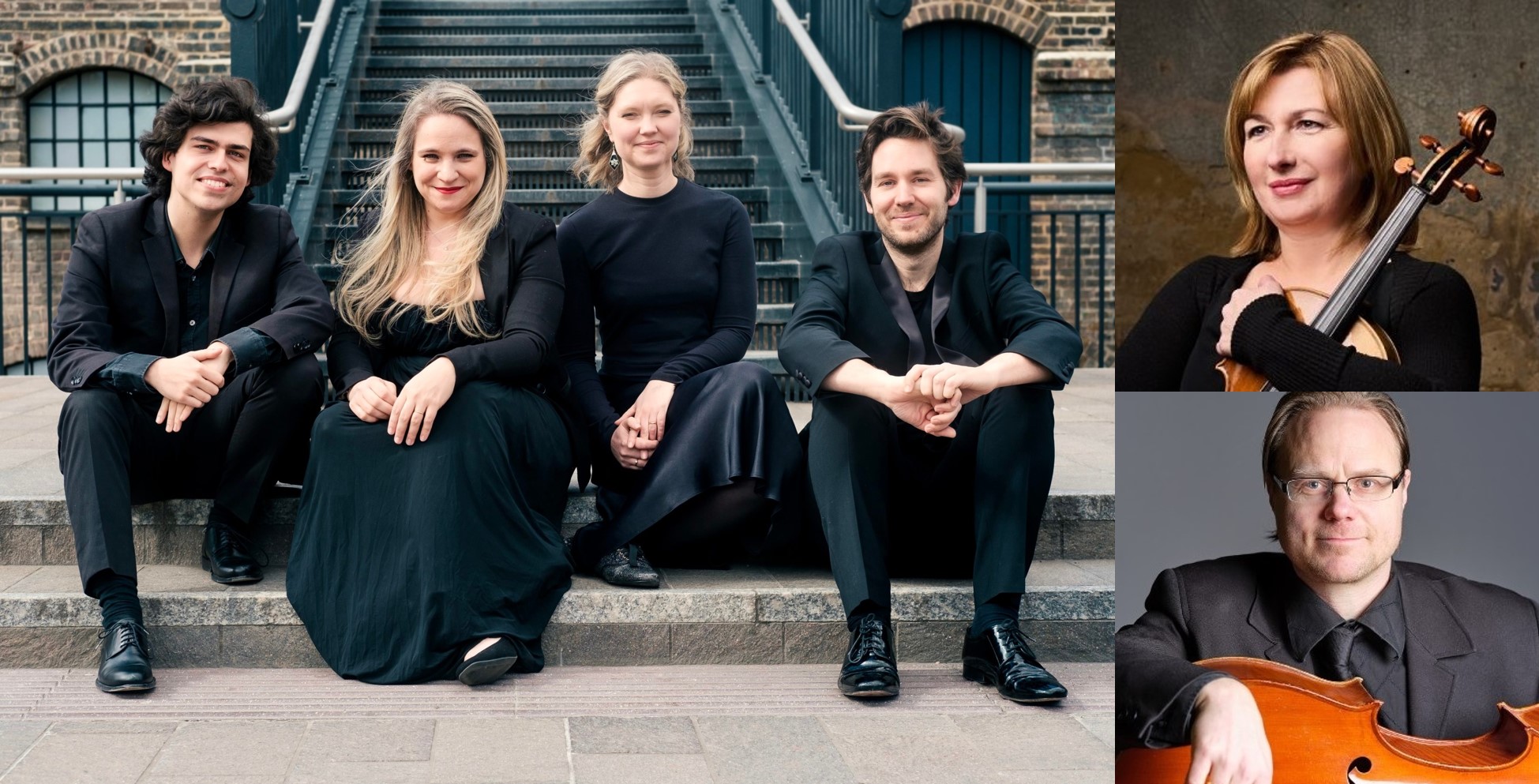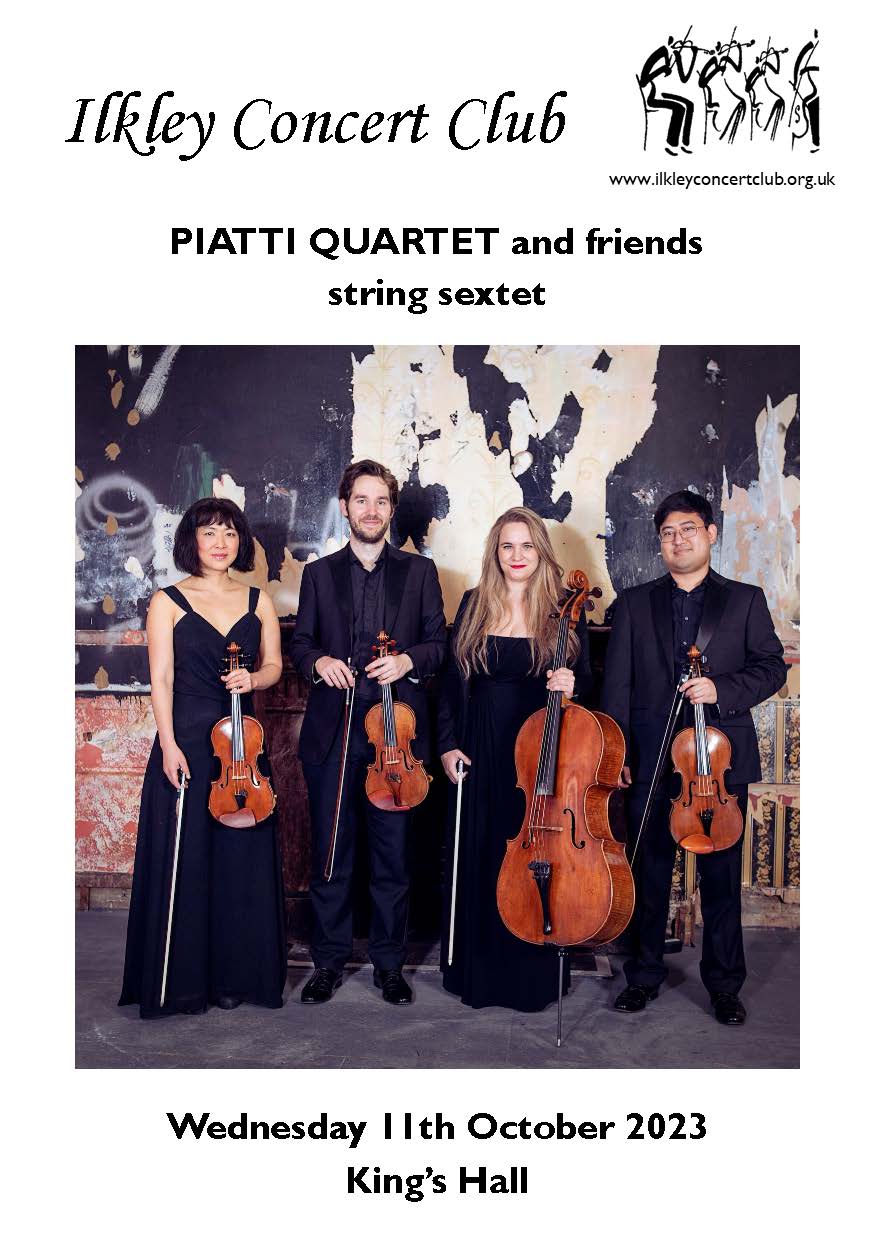REVIEWS
PIATTI QUARTET and friends string sextet

Wednesday 11 October 2023 7:30pm
Tchaikovsky Souvenir de Florence, op 70
Brahms String sextet no. 1 in B flat major, op 18
The rich sonorities of the string sextet proved a great attraction for the late romantic composers, set off by Brahms’ first work for strings of 1860.The extra viola and cello allowed the young Brahms scope for weaving ever more complex tapestries of sound. Thirty years later, Tchaikovsky started to sketch his sextet while working on his opera The Queen of Spades in Florence. Despite its title this deeply romantic work has a second half filled with distinctly Russian folk-like melodies.
Since their prize-winning performances at the Wigmore Hall competition in 2015, the Piatti quartet have become known for their ‘lyrical warmth’ and love of diverse programming and collaboration. Tonight they partner with Rachel Roberts (viola), who made a real impact on her Ilkley debut last season, and the cellist Jonathan Aasgaard to bring us two gems of the sextet repertoire.
REVIEW BY Chris Skidmore
A rousing start to a new season
The first concert of the 77th season of the Ilkley Concert Club took place at the King’s Hall last Wednesday. The Piatti Quartet had brought with them Rachel Roberts (viola) and Jonathan Aasgaard (cello) to present a concert of string sextets. It may have been the first time that many in the audience had heard a string sextet live as they are rarely performed in the concert hall (on only three previous occasions at the Concert Club!). It is astonishing how the addition of two extra lower-pitched instruments can change the sound of the classical string quartet line-up, bringing not only extra volume an almost orchestral complexity to the sound.
Brahms’ first sextet began the programme, as it often does the history of the string sextet, being the first substantial work to remain in the repertoire. The outer movements are musically complex and melodious, the Andante a theme and variations in a minor key and the scherzo rustic with a lively trio. Brahms seems never to want to finish a movement as you expect with final sections which often contrast legato playing with lively pizzicatos for all the players. This work is substantially led by the first cello and Jessie Anne Richardson did not disappoint in that role with both amazing agility over the fingerboard as well as an assured tone. The group responded sensitively to each other producing amazing richness when needed but it was in the pizzicatos that they really shone!
The second half contained Tchaikovsky’s far-from-Italianate Souvenir de Florence, with all the variety of Russian melody that you could want. As violinist Michael Trainor explained the piece is as much fun to play as to listen to. That was clear from the players faces as they passed the romantic melodies of the second and fourth movements from part to part and coped with the demands of the virtuoso passages, again filled with demanding pizzicatos. The tumultuous applause that broke out at the quintessentially Tchaikovskian finish was both witness to the enjoyment of the audience and a tribute to the virtuosity of this impressive band of players. What a start to the season!



